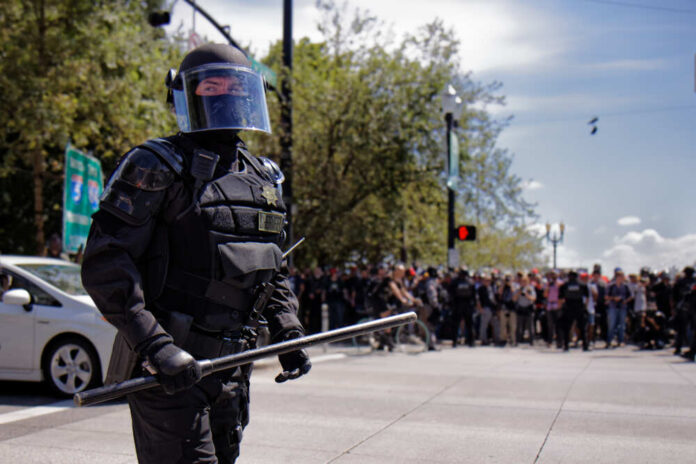
A North Carolina bill created in order to bring harsher punishments for rioters is slated to pass into law without the approval of Gov. Roy Cooper (D).
H.B. 40, a bill that codifies new penalties for starting or taking part in a riot, came to Cooper’s desk on March 10. Charges that can occur once the legislation is passed vary depending on how much proper damage is determined to have been caused, whether or not the suspect shows a weapon, if the riots lead to death, etc.
In a press release, Cooper stated he would neither approve nor deny the bill. He vetoed a similar proposal at the end of 2021.
“I acknowledge that changes were made to modify this legislation’s effect after my veto of a similar bill last year,” he said, according to the release. “Property damage and violence are already illegal and my continuing concerns about the erosion of the First Amendment and the disparate impacts on communities of color will prevent me from signing this legislation.”
The bill, reportedly titled the Prevent Rioting and Civil Disorder Act, was previously vetoed by Cooper under the official name of H.B. 805. At the time, Cooper charged the bill “unnecessary” and “intended to intimidate and deter people from exercising their constitutional rights to peacefully protest.”
North Carolina notably saw a drop in the voter registration of Democrats amidst the COVID-19 Pandemic, according to a Fox News report posted to Twitter by the Trump War Room in July 2020.
As Democrats like Joe Biden embrace radical socialism, Americans are choosing to register Republican!
“Voter registration for Democrats is going down. To the shock of many, Republicans are beating them in Colorado, Florida, Maine, North Carolina, and Pennsylvania.” pic.twitter.com/GyMa7azSXA
— Trump War Room (@TrumpWarRoom) July 13, 2020
Breitbart News noted that while similar in nature to the previous proposal, H.B. 40 contains at least a couple of significant differences. One is that H.B. 805 allowed for police to detain those who allegedly rioted for 48 hours before a judge makes a call about pre-trial detention, whereas the 2023 bill shrinks the window to 24 hours.
The bills appeared to address any concerns of potential First Amendment violations; they both contain a section stressing that “[m]ere presence alone [at a riot] without an overt act is not sufficient to sustain a conviction.”
In reaction to the bill’s imminent passing, North Carolina House Speaker Tim Moore (R) stated, “Nearly three years after violent protests devastated communities and businesses in North Carolina, I am pleased that this bipartisan legislation will finally become law.”














